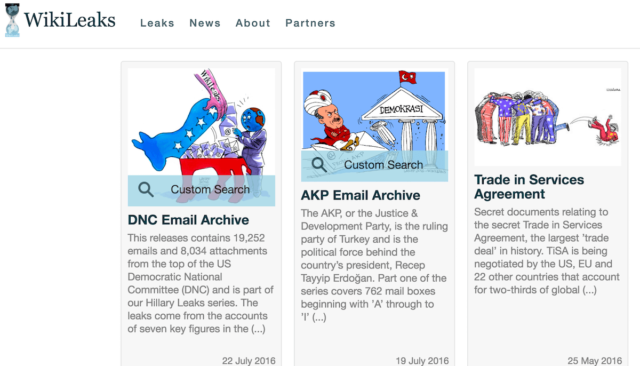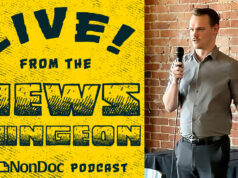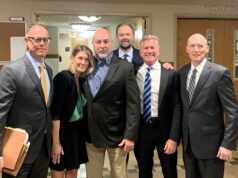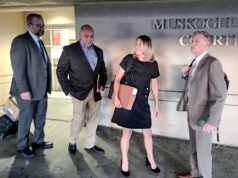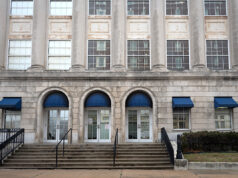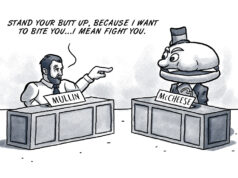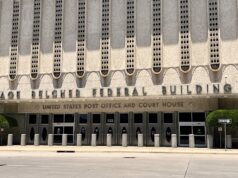
On its about page, WikiLeaks.org brags of the journalism and media awards it and its publisher have won since launching in 2006.
The site, which “specializes in the analysis and publication of large datasets of censored or otherwise restricted official materials,” has dumped data and exposed information about sensitive subjects to both international acclaim and international ridicule.
But while freedom of information is a concept any reputable journalism organization should support, making responsible decisions with that information is as well.
On that front, WikiLeaks continues to make irresponsible and unethical decisions.
Most recently, the site published more than 19,000 emails from the Democratic National Committee. While obtaining and publishing a political party’s emails is somewhat amusing and interesting, WikiLeaks’ DNC release crosses the line in a specific way.
As originally noted by Yahoo and Gizmodo (who filed their story under “Dickheads”), the WikiLeaks email dump includes the social security numbers, credit card info and/or passport numbers of dozens of people.
In essence, “this great library” (as founder Julian Assange calls it) has created the threat of financial theft and identity theft for a significant number of innocent civilians.
‘Minimize Harm’
While WikiLeaks touts its journalism awards, Assange and editor Sarah Harrison would do well to read the Society of Professional Journalists’ code of ethics.
If they did, they’d come to a section titled “Minimize Harm.” The section’s bullet points note that “ethical journalism” requires that publishers and editors:
“Show compassion for those who may be affected by news coverage.”
“Avoid pandering to lurid curiosity, even if others do.”
“Consider the long-term implications of the extended reach and permanence of publication.”
Recklessly publishing people’s dates of birth, SSNs and credit card numbers violates each of those tenets (and then some).
Classless editorial decision
And for what? In this specific WikiLeak, a gawking public has so far only learned that a DNC official asked colleagues whether questions about Sen. Bernie Sanders’ faith might help derail his late-to-the-party Democratic presidential primary campaign.
While staunch Sanders supporters are pleased to see mild evidence that the DNC favored Hillary Clinton, that revelation in no way trumps the harm done to private citizens whose private information has now been published in a database forever. (Neither does the resultant and impending resignation of maligned DNC chairwoman Debbie Wasserman Schultz.)
The exposed social security numbers and other identifiers belong to people ranging from billionaire donors to children in families who took White House tours. While today’s popular anti-rich sentiments might lead some to scoff at the notion of political donors deserving privacy, anyone who wants to claim journalism awards should know better.
It’s time for responsible, ethical journalists — among others — to stand up and rebuke WikiLeaks for such a lazy, classless editorial decision.
If Assange and Harrison want to take a WikiLeak down their own legs and tell the world it’s raining, they shouldn’t be showered with further journalism awards for it.
The public deserves better, and redacting private party information isn’t all that hard.








